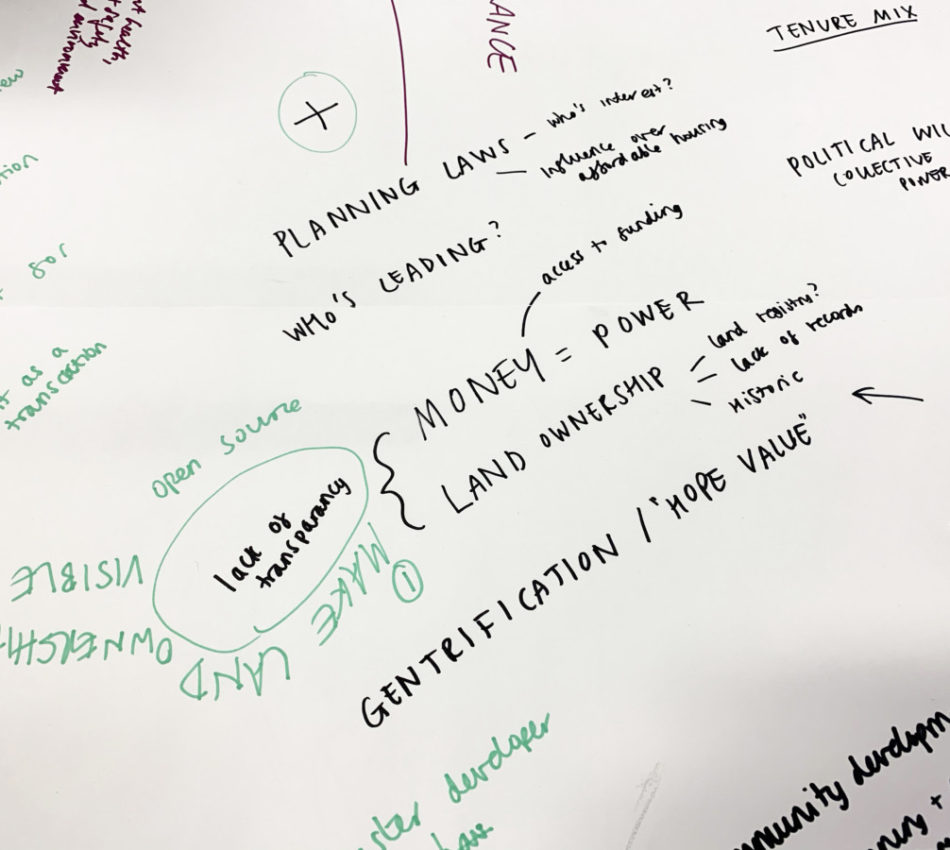Written by:
As part of our WE design event series, The Glass-House invited participants who attended our event in Manchester on 26 Februrary 2020 to share their thoughts and reflections with us.
In February, I attended The Glass-House workshop Reconfiguring Place: Housing in Manchester.This stimulating workshop took four themes; connection, diversity, power and sustainability as starting points for discussion around how to shape our neighbourhoods differently, in particular how to produce better housing/homes in England.
I chose to discuss the power theme with other participants, and as the previous post describes, a lively discussion took place, raising a raft of issues and several solutions to them. In part, we discussed the English planning system, and I highlighted the potential role for the recent recommendations made by the ‘Raynsford Review’ of the English planning system, entitled ‘Planning 2020: Raynsford Review of Planning in England’ (2018).
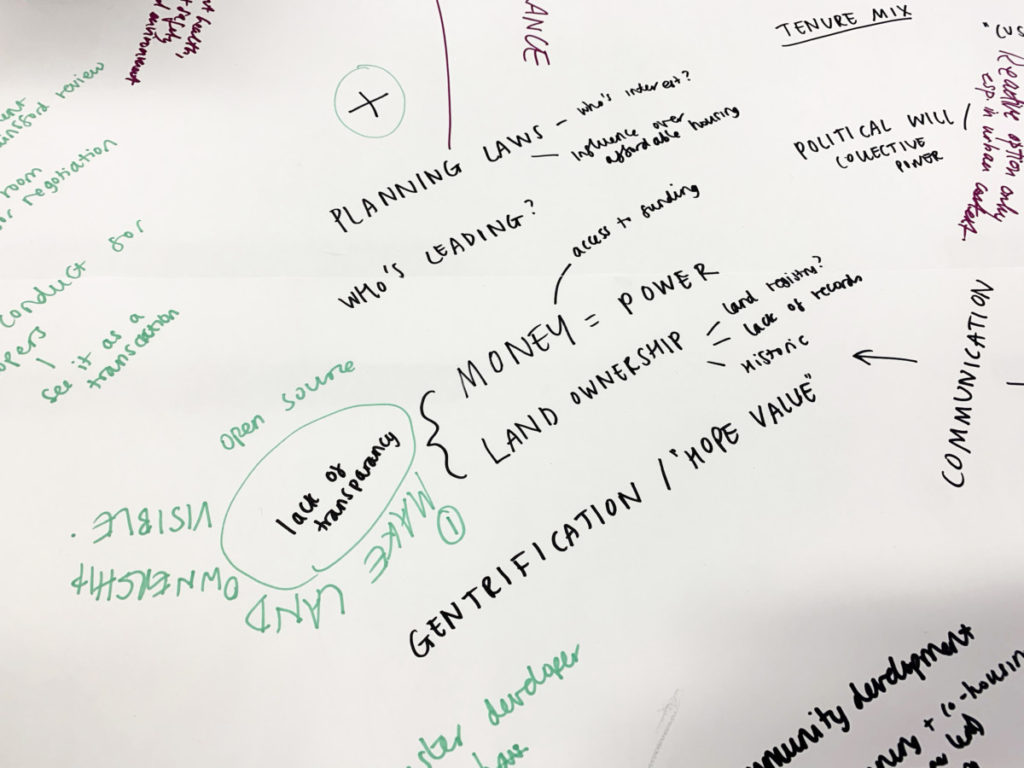
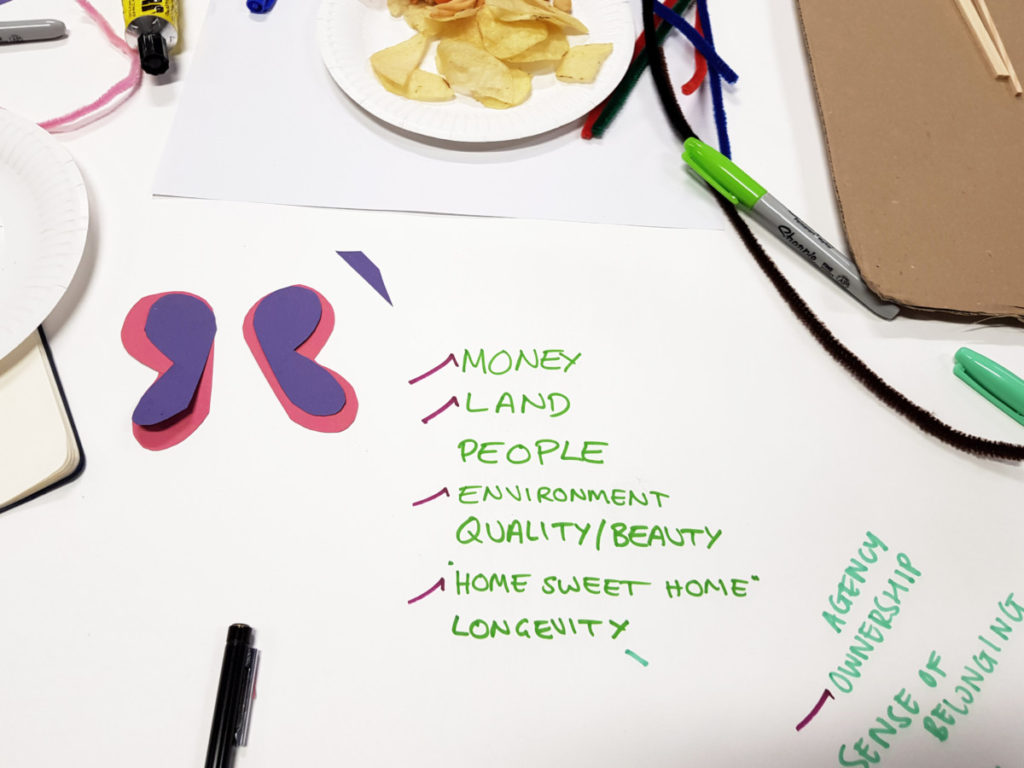
The Review was undertaken due to serious concerns that the English planning system no longer delivers for people, that it is ‘not fit for purpose in securing lasting progress on key aspects of the economy, in meeting housing needs, in tackling climate change, or in mitigating the current stark inequalities between the regions of England’. The Review was undertaken by the Town and Country Planning Association (TCPA) from 2017 to 2018, and over 2400 participants from across the planning profession in both the public and private sectors took part.
I’ve written a series of five posts on the Review, published in February of this year. The Review is wide-ranging and thorough, and I recommend reading more about it here. In January this year, TCPA published ‘Planning 2020 ‘One Year On’ 21st Century Slums?’, a follow-on report, taking stock of English planning one year on from the publication of the Review.
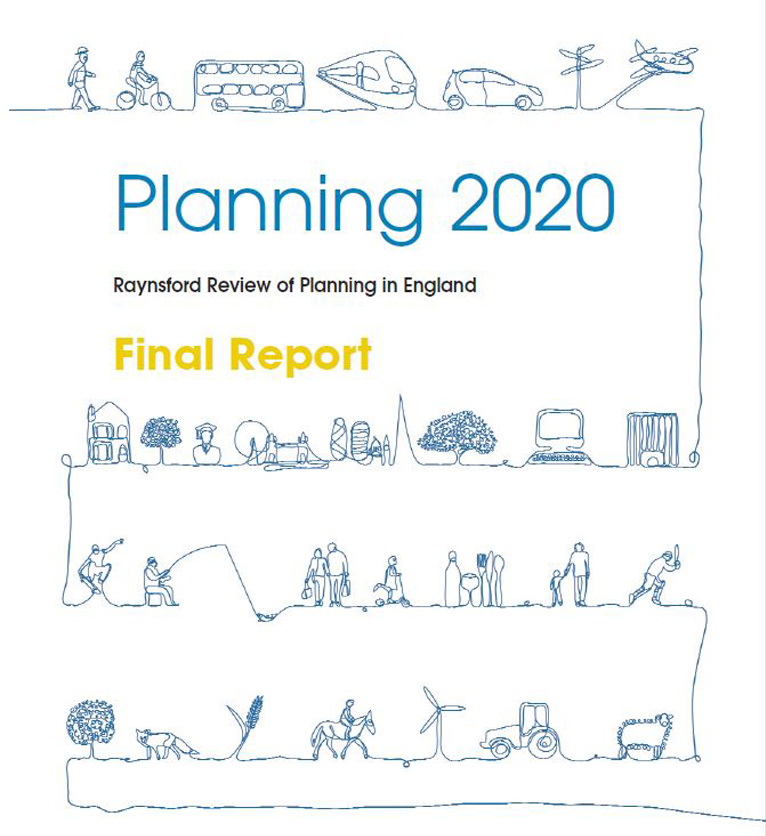
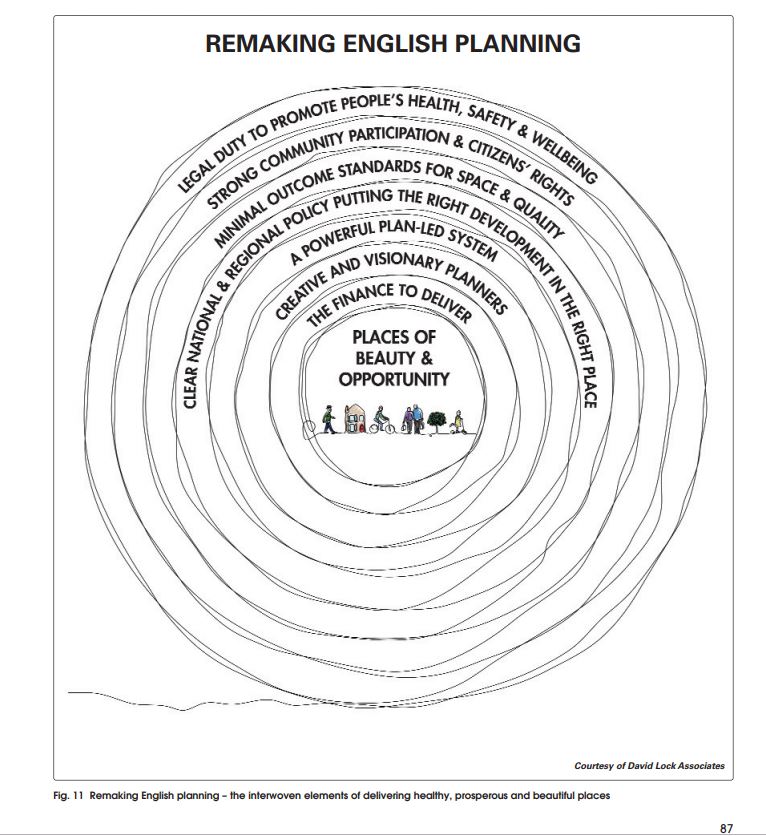
The Review makes 24 recommendations. For me, the most significant is the first on the purpose of planning, which should be: ‘to positively promote the long-term sustainable development of the nation and the health, safety and wellbeing of individuals’. Importantly, the Review defines sustainable development as:
1. ‘Managing the use, development and protection of land, the built environment and natural resources in a way which enables people and communities to provide for their social, economic and cultural wellbeing while sustaining the potential of future generations to meet their own needs’.
2. ‘Promoting social justice and reducing inequality’.
Refocussing the purpose of planning towards genuinely sustainable development (including promoting social justice and reducing inequality), towards the health, safety and wellbeing of individuals would be a major change from current national policy. This would shift the planning system back towards its original purpose of being about public health, and the management of land for people and communities on the ground who live and work in their places, in the long-term public interest.
The Reviews suite of recommendations includes: Local Authorities preparing ‘people-centred’ Local Plans; a right for communities to participate in planning decisions; a new building code with minimum requirements for residential developments, including climate resilience measures; and a ‘Do no harm’ obligation for planning professionals.
Taken as a whole, the Review’s recommendations would, if implemented, provide a new enabling framework for delivering on the issues raised in our workshop discussion around power, homes and housing, as well as directly helping deliver the recommendations identified in the workshop blogpost around:
- A more integrated and consistent planning system, with shared values and priorities
- Reduce access to cars in cities
- Encourage and enable different approaches to development
- Disrupt the current power balance
The Review concludes that English planning needs remaking, and that the new system it recommends would ‘deliver for people a clear purpose which prioritises the wellbeing of people within the overarching objective of long-term sustainable development, aimed at making places of safety, beauty and resilience’.
Sarah Spanton is a freelance consultant based in Manchester, working across the North of England. She is director of Waymarking, which works in community-led planning, regeneration and economic development, bringing a creative and co-produced approach to a range of projects. Recent projects include: neighbourhood plan-making in Wigan; developing community economic strategies in Leeds; community conversations around inclusively repurposing a church in Manchester; and community-led design of greenspace in Wigan.
